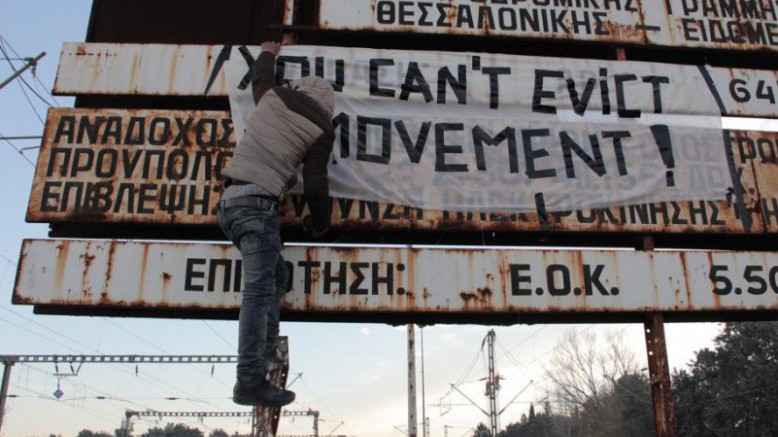Source: Observers
When Greek police started dismantling a big migrant camp on the border with Macedonia, journalists, NGO workers and other activists rushed to take photos and videos. However, the police swiftly kicked them out, and forced them to wait several kilometres away from the camp. A few images have nevertheless trickled out.
For the past three weeks, hundreds of migrants had been stranded at a camp near the Greek village of Idomeni after Macedonian authorities decided to start filtering people by nationality. Like other Balkan states, they are now only letting in Syrians, Iraqis, and Afghanis. This left about 1,200 other migrants – mainly Iranian, Pakistani, and Moroccan – stuck on the border. They held repeated protests to try to convince the authorities to let them in – some even sewing their lips shut – but to no avail.
Early Wednesday morning, Greek police moved in on the camp, forcing people out of their tents and into buses heading for Athens. They are expected to be placed in state-run camps there.
“They’re trying to make these people invisible, like ghosts”
Julia Serdarov, who is from Germany, is one of the activists running the MovingEurope Bus. They travel to border regions to monitor migrants’ living conditions and provide them with information. They have been working in Idomena for the past 10 days.
„We don’t sleep at the camp, so we were in a nearby village this morning when we heard the news that the police had moved in. We tried to go there, but only got about 500 metres from the camp. We saw lots of police there, forming a human chain around the camp. Several officers came over and made us turn back.
We had heard rumours for days that the camp would be evacuated, so we weren’t surprised when it happened. In the last week, we had observed the authorities trying to make conditions harder and harder. On Tuesday, we were shocked to realise that the police was no longer letting people from the camp go into the village to buy food. There was a police car sitting at the entrance of the village, and they were checking everyone’s IDs!
“Closing the border just means the business of smugglers will flourish”
We also saw the police stopping a private bus coming in from Athens with migrants on board. As it exited the highway to head in the direction of the camp, the police pulled the bus over and asked every person on board for their ID. Anyone who wasn’t Syrian, Iraqi, or Afghani was forced off the bus and left by the side of the road in the cold of night. I heard one policeman say that they were not people – that they were ghosts.
One family we talked to was actually from Syria, but they didn’t have Syrian IDs since they were Palestinian refugees there. First, they thought they would walk the six remaining kilometres to the camp, but the police were watching them. We wanted to drive them there, but the police wouldn’t let us. In the end, the bus returned from the camp and its kind driver took them back to Athens, for free.
In fact, in the past weeks, many people at the camp had been despairing due to the cold temperatures and lack of food, and heading back to Athens to try to find other solutions. But of course, they’re all still going to try to make it to northern Europe, by whatever means necessary. This border closing just means that the business of smugglers will flourish once again.
I keep thinking about the policeman who talked about the migrants being ghosts – and I think that’s exactly why the authorities kept journalists and other international observers away when they dismantled this camp, to make these people invisible.“

